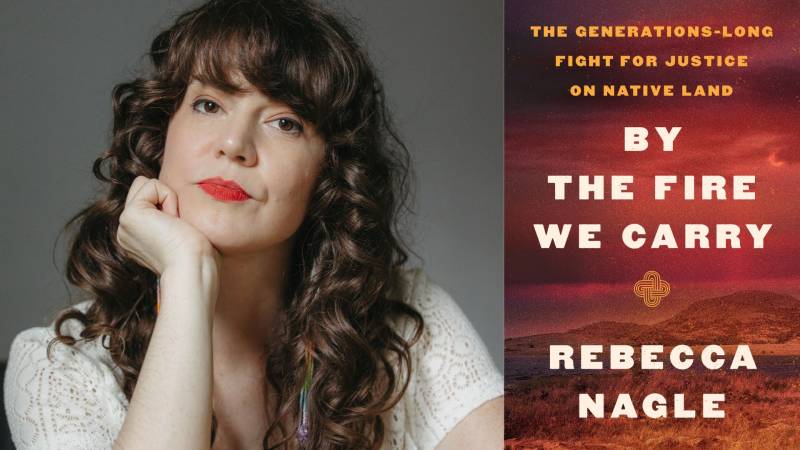A truly landmark Supreme Court decision in 2020 resulted in the largest restoration of Native American tribal land in American history. More than half of the state of Oklahoma is now declared “Indian Country” after the court decision. In her book “By the Fire We Carry” journalist Rebecca Nagle, a member of the Cherokee Nation, traces the generations-long fight for sovereignty and the brutal history of tribal land removal that underpinned the decision. We’ll talk to Nagle about her own family’s complicated legacy in the struggle for justice and the implications of the Supreme Court decision.
Rebecca Nagle on the Long and Ongoing Battle for Tribal Sovereignty and Land

Guests:
Rebecca Nagle, author, "By the Fire We Carry, The Generations-Long Fight for Justice on Native Land"; host of the podcast "This Land." She's also an activist, writer and citizen of the Cherokee Nation.<br />
Interview Highlights
Landmark Supreme Court Decision on Native Land
In 2020, the McGirt Supreme Court decision resulted in the largest restoration of Native American tribal land in U.S. history. The decision begins , “On the far end of the Trail of Tears, there was a promise.” The court ruled that Congress had never abolished the Muscogee Nation’s reservation in Oklahoma, with Justice Gorsuch writing, “Because Congress has not said otherwise, we hold the government to its word.” This meant over half of Oklahoma was declared “Indian country,” with jurisdiction shifting from the state to tribal nations or the federal government for crimes involving Native Americans on those lands.
America’s Campaign of Ethnic Cleansing
Nagle recounted the brutal history underpinning this decision – the forced removal, later known as the Trail of Tears, of tens of thousands of indigenous people from the south east, including Muscogee Nation and her tribe, Cherokee Nation. “The US developed a policy really of ethnic cleansing, of saying, all indigenous nations…within the states of the republic had to move west of the Mississippi.” Congress carried out President Andrew Jackson’s policy “and at the end of it actually eighty thousand indigenous people were forcibly moved west, in a tragedy where people died in numbers that are hard to imagine today.”
Allotment and Land Dispossession
Even after being forcibly relocated, Native Americans faced ongoing dispossession through policies like the Allotment Act, which privatized communally-held tribal lands. Nagle described it as “a huge act of bureaucratic theft,” enabling “an entire industry [to] sprout up around swindling, stealing, even murdering native people, for their land.” She recounted the harrowing story of Millie Naharkey, whose valuable oil inheritance led to her being abducted, assaulted, declared legally incompetent and stripped of her property – an all too common occurrence.
Asserting Modern Tribal Sovereignty
While representing a pivotal legal victory, Nagle sees the 2020 McGirt Supreme Court decision as part of an ongoing process of tribes “clawing our way back from allotment” by rebuilding and expanding governing capacity. “Our tribal governments are paving roads, they’re running hospitals, they’re giving money to education, they’re running schools, they’re running colleges, and so I think there’s a lot that tribes can do with expanded land rights and also with expanded jurisdiction.” But she clarifies that there is an easy mistake people make in telling the story of this Supreme Court decision, “which is to say that the land was given back to the tribe. But that’s actually incorrect, because despite everything that Oklahoma said, despite all that was taken from our tribes during allotment, the legal right to our land never ended… and you can’t give back something that already belongs to someone.”
Justice is Possible
In her epilogue, Nagle writes, “The lesson of McGirt is not that when the law is on our side and we fight hard, justice prevails. The lesson is that although justice for Indigenous nations is rare, in our democracy it is possible.”
This content was edited by the Forum production team but was generated with the help of AI.